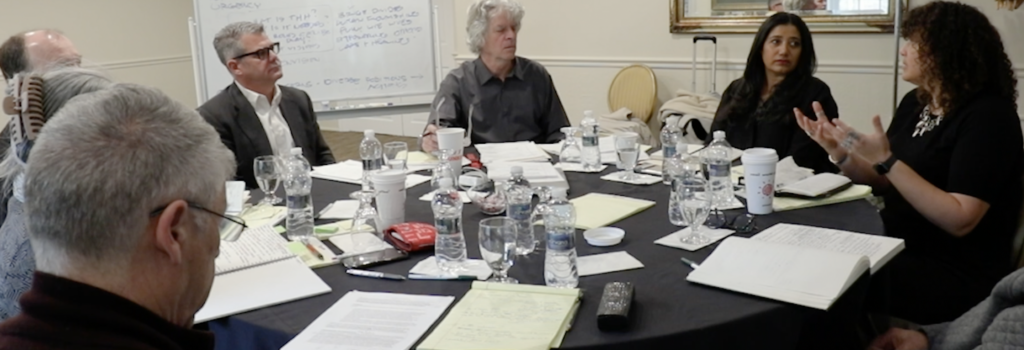Randall Teal
University of Idaho, Moscow, Idaho (USA)
rteal@uidaho.edu
In an age of dire environmental straits the quality of “place” is one of the basic determinations of whether we live in a world worth saving. But what is place and does it possess sacred dimensions? For this discussion I turn to German philosopher Martin Heidegger, who outlined an existential structure called the fourfold. Heidegger’s fourfold is gathered in “things” and consists of earth, sky, mortals, and divinities. This talk centers on one aspect of the fourfold, the divinities, and their role in shaping particular experiences of place.
Heidegger’s divinities should not be understood as sacred in any typical sense. Jeff Malpas explains that of the four elements in the fourfold, the divinities “…present the greatest difficulty for contemporary readers,”1 and “that part of the difficulty resides in the common tendency to think of the gods in religious terms.”2 Damon Young reinforces this thought by suggesting that, “… Heidegger’s notion of divinity cannot be understood outside its context of poetic phenomenological hermeneutics.”3 Malpas further suggests that to grasp Heidegger’s divinities one must keep in mind that “much of Heidegger’s thinking about the gods is determined by Greek thought and experience,”5 and Heidegger himself provides insight into this comment in a 1942 lecture course on Parmenides saying that, “the Greeks neither fashioned the gods in human form nor did they divinize man…they experienced the gods and men in their distinct essence, and in their reciprocal relation.”4 Heidegger goes on to explain that for the Greeks the gods were the “…attuning ones…,” as well as “…Being itself…”6 Now in Being and Time Heidegger established “Being” as a phenomenon not to be confused with a supreme being (the so-called ontotheological view) and he speaks to one’s relation with being as one of attunement. Here Heidegger is drawing upon the German word stimmung, a word that means both attunement and mood.
The ecstatic structure of stimmung is the “reciprocal relation” between mortals and divinities. Seeing the divinities as the mood of encounter allows a clearer understanding of the nature of this reciprocation, in that the divinities announce themselves as a pervasive atmosphere that lights up one’s engagement with a specific situation much like the Homeric gods did in coloring encounters as belligerent, fortuitous, amorous, and so on. A notion of the divine that is grounded in the experience of the world is consistent with Malpas’ reading of the divinities as he advises, “Heidegger’s gods should not be construed as ‘supernatural’ in any of the usual ways.”7 The atmospheric quality of the divinities and their importance to our orientation in the world is echoed in the essay “The Nature of Language,” where Heidegger says that, “to undergo an experience with something – be it a thing, a person, or a god – means that this something befalls us, strikes us, comes over us, overwhelms and transforms us”8 Here it is possible to see how the immaterial divinities reveal and are revealed by the material encounter of place.
An interesting nuance of this phenomenon is that instead of the divinities’ presence being limited to the typically religious notion of God as sacrosanct, stimmung frees the shining of the gods to be much more broadly influential. In this way the presence of the divinities can show up as sanctified or irreverent, happy or sad, inspiring or bland as well as more subtly tinged shades. This view is corroborated by Heidegger’s assertion that “secular spaces are always the privation of often very remote sacred spaces.”9 Further, this understanding of the divinities reveals that there is always some pervasive mood present in a situation, and so the question is not if but what the mood is; that is to say feeling the affect of said mood is what becomes critical. For Heidegger, openness, participation, and response enable the “holy sway” of the divinities to be experienced as our ever changing being-in-the-world.
From the openness of gelassenheit to the anticipatory resoluteness of authentic Dasein the call for individuals to prepare themselves for encounter is at the heart of Heidegger’s philosophy. If mood is that which announces the sacred then it is increasingly important that we as designers, as mortals, become better responders. That is to say, that we must learn to treat situations as ends in themselves rather than means to other goals. When mood/place is seen as sacred one becomes sensitive to situations in their complex totality. Heidegger’s divinities allow the experience of the sacred to move away from being something absolute, moralizing, and exclusionary. In this understanding the sacred is made possible in the simple question of whether one can take up the experience of life (in all its shades) with awe. This question is perhaps the question for the future of a planet that sustains not just material resources, but rather supports and inspires humanity itself. Herein lies the opening for an architecture that bears the weight of the human condition, finding resonance and points of connection with the places of our world.
Notes:
1 Jeff Malpas, Heidegger’s Topology: Being, Place, World (Cambridge Mass.: MIT Press, 2006), p. 274.
2 Ibid.
3 Damon Young, “Being Grateful for Being: Being, Reverence and Finitude,” Sophia 44, no. 2 (2005): p. 39.
4 Martin Heidegger, Parmenides, trans. Andre Schuwer and Richard Rojcewicz (Bloomington and Indianapolis Indiana University Press, 1992), p. 110.
5 Malpas, Heidegger’s Topology: Being, Place, World, p. 274.
6 Heidegger, Parmenides, p. 111.
7 Malpas, Heidegger’s Topology: Being, Place, World, p. 274.
8 Martin Heidegger, “The Nature of Language,” in On the Way to Language (New York: Harper One, 1971),
p. 57.
9 Martin Heidegger, “Art and Space,” Man and World 6, no. 1 February (1973): p. 5.




